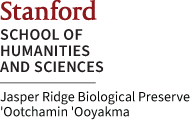Funk JL, Hoffacker MK, Matzek V. 2015. Summer irrigation, grazing and seed addition differentially influence community composition in an invaded serpentine grassland. Restoration Ecology 23(2):122-30. doi: 10.1111/rec.12162.
Community assembly theory predicts that resource availability, biotic interactions, and dispersal dynamics will determine community composition. Recent work has demonstrated that manipulating these processes or “filters” to exclude exotic species may assist in restoring invaded plant communities. In this study, we began by manipulating an abiotic filter, summer water availability, on the theory that irrigation prior to the growing season could trigger the germination of exotic species during unfavorable environmental conditions. First, we performed a greenhouse experiment to assess the germination traits of 23 native and exotic species at low (16°C, spring) and high (30°C, summer) temperatures. At summer temperatures, we found high emergence of many exotic and native grasses and low emergence of native forbs suggesting that summer irrigation may help deplete the exotic seed bank. In a second experiment, we established field plots to test the efficacy of summer irrigation and simultaneously manipulated a biotic and a dispersal filter, subjecting some plots to grazing and/or native seed addition. Summer irrigation and seed addition had no effect on percent cover or species richness while grazing reduced native cover but increased native species richness and soil nitrogen content. Our data suggest that manipulating grazing (a biotic filter) may be more effective than altering abiotic or dispersal filters when restoring invaded serpentine grassland. However, summer irrigation may also be effective, if applied at lower temperatures or for longer periods. link to publication



